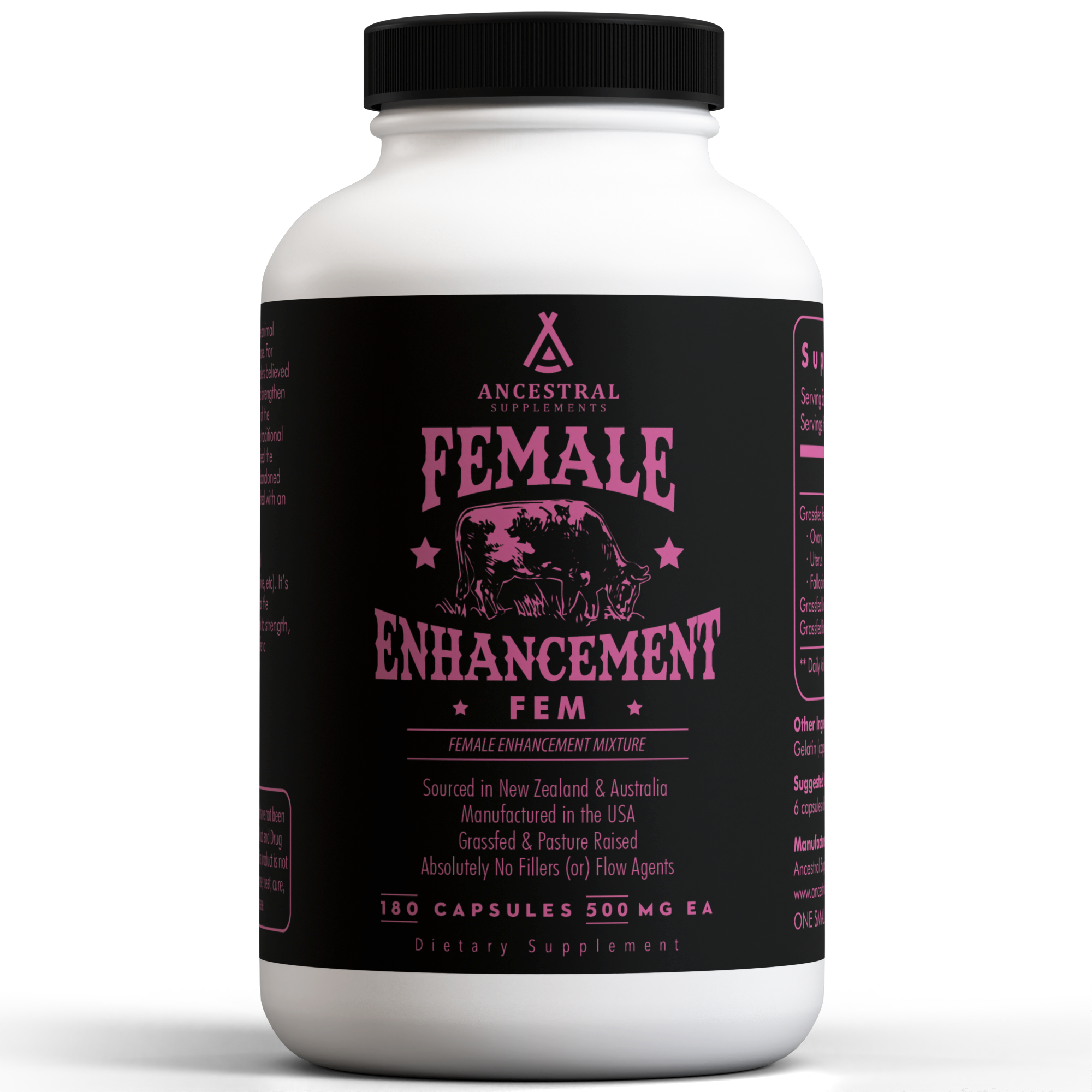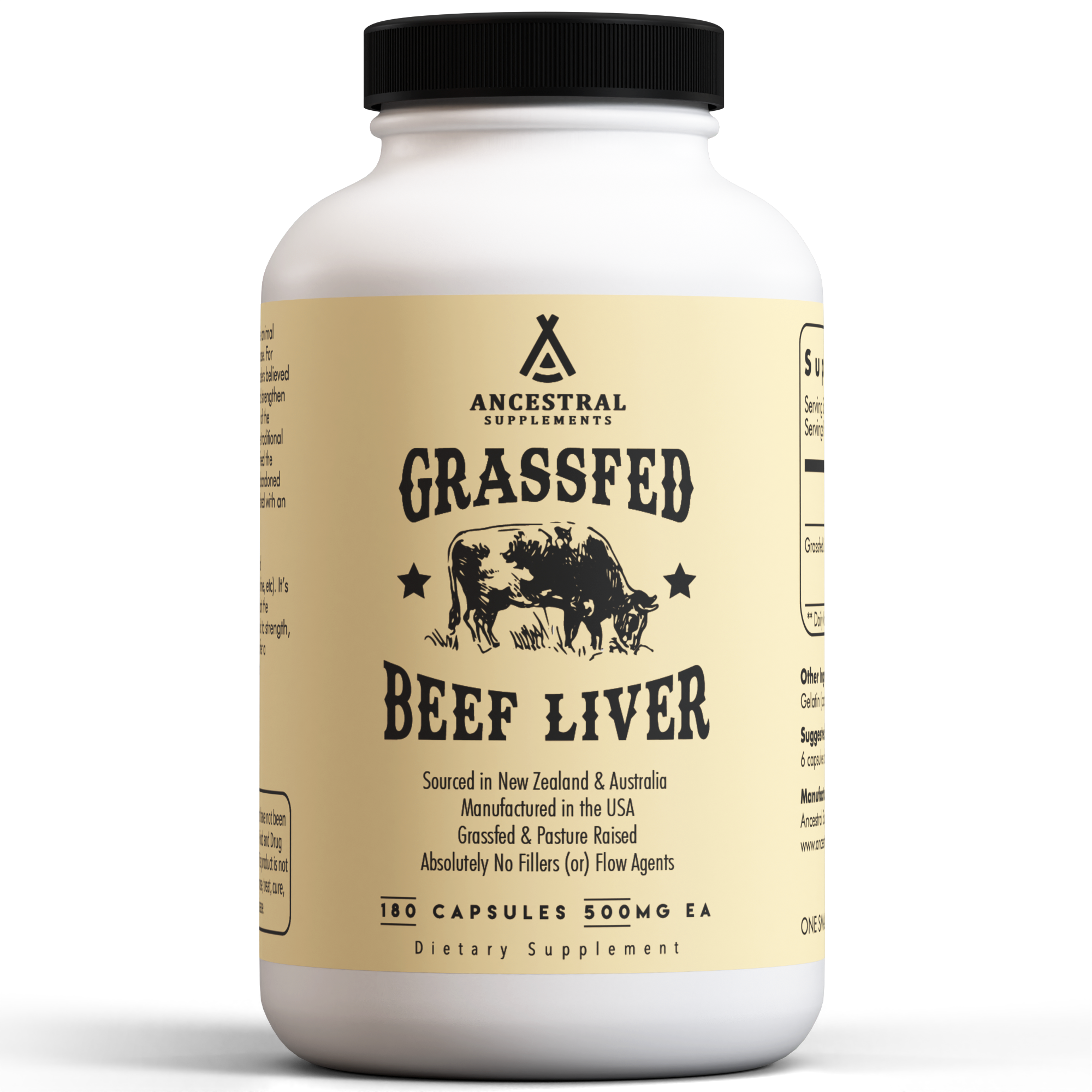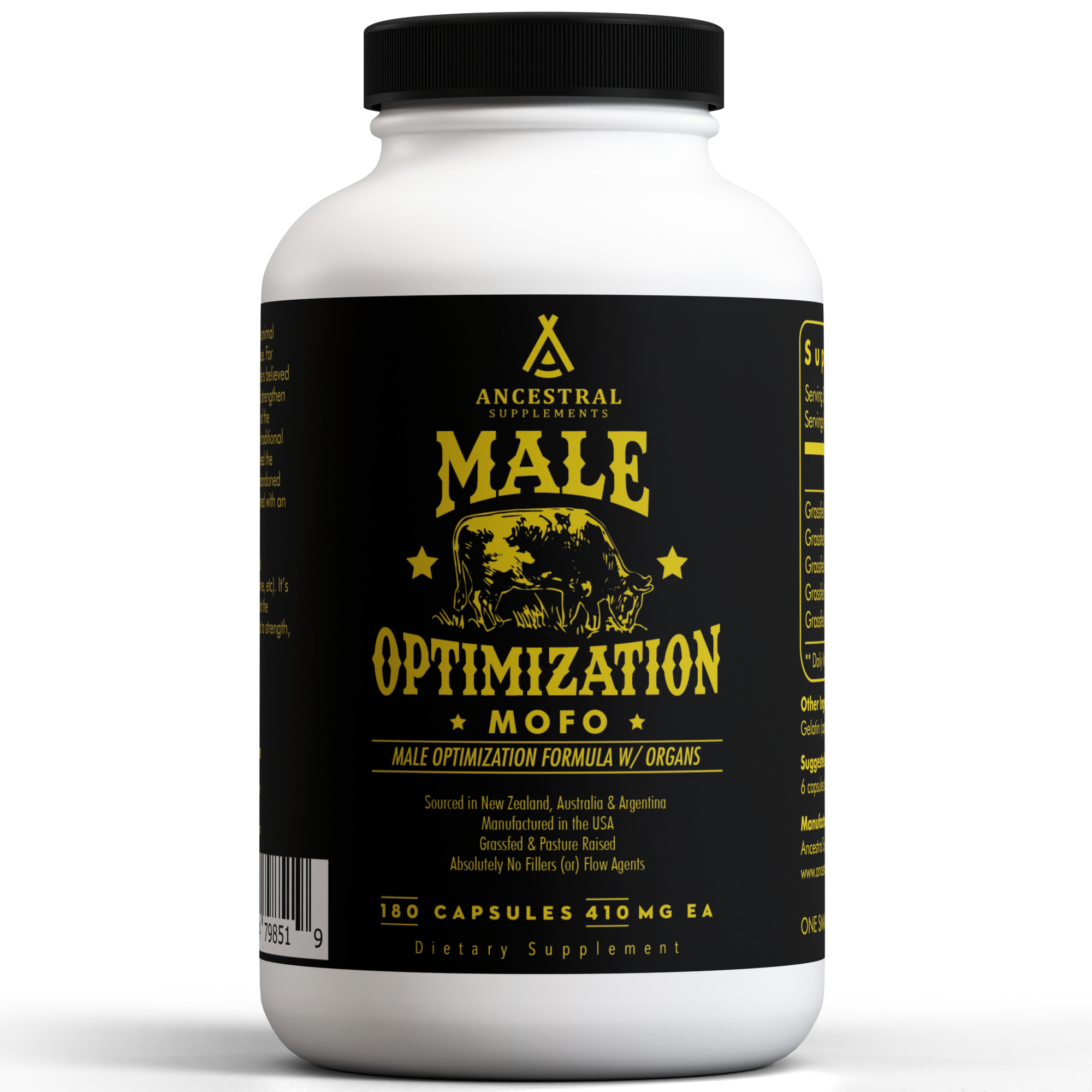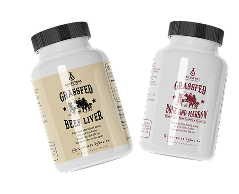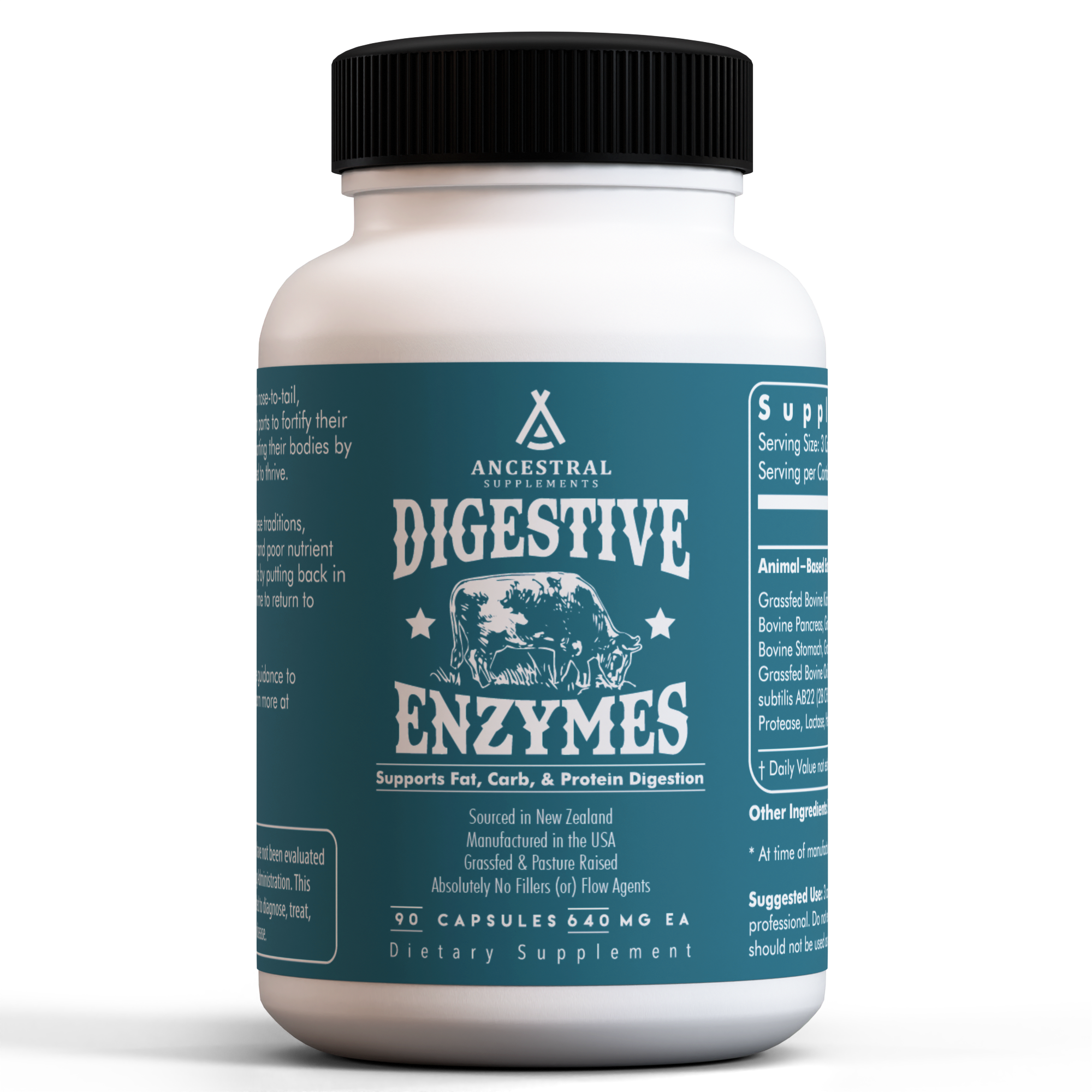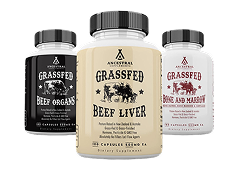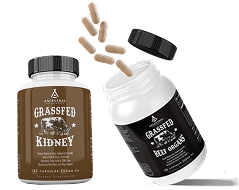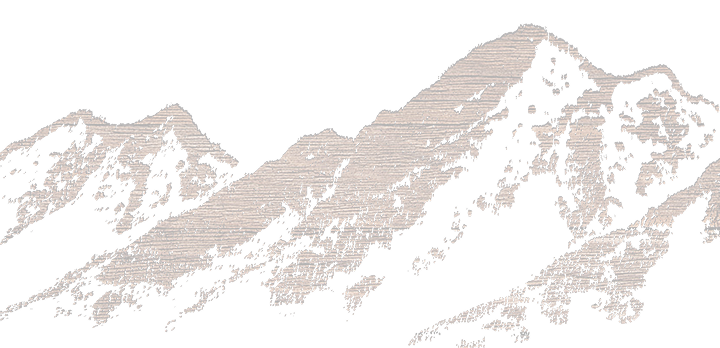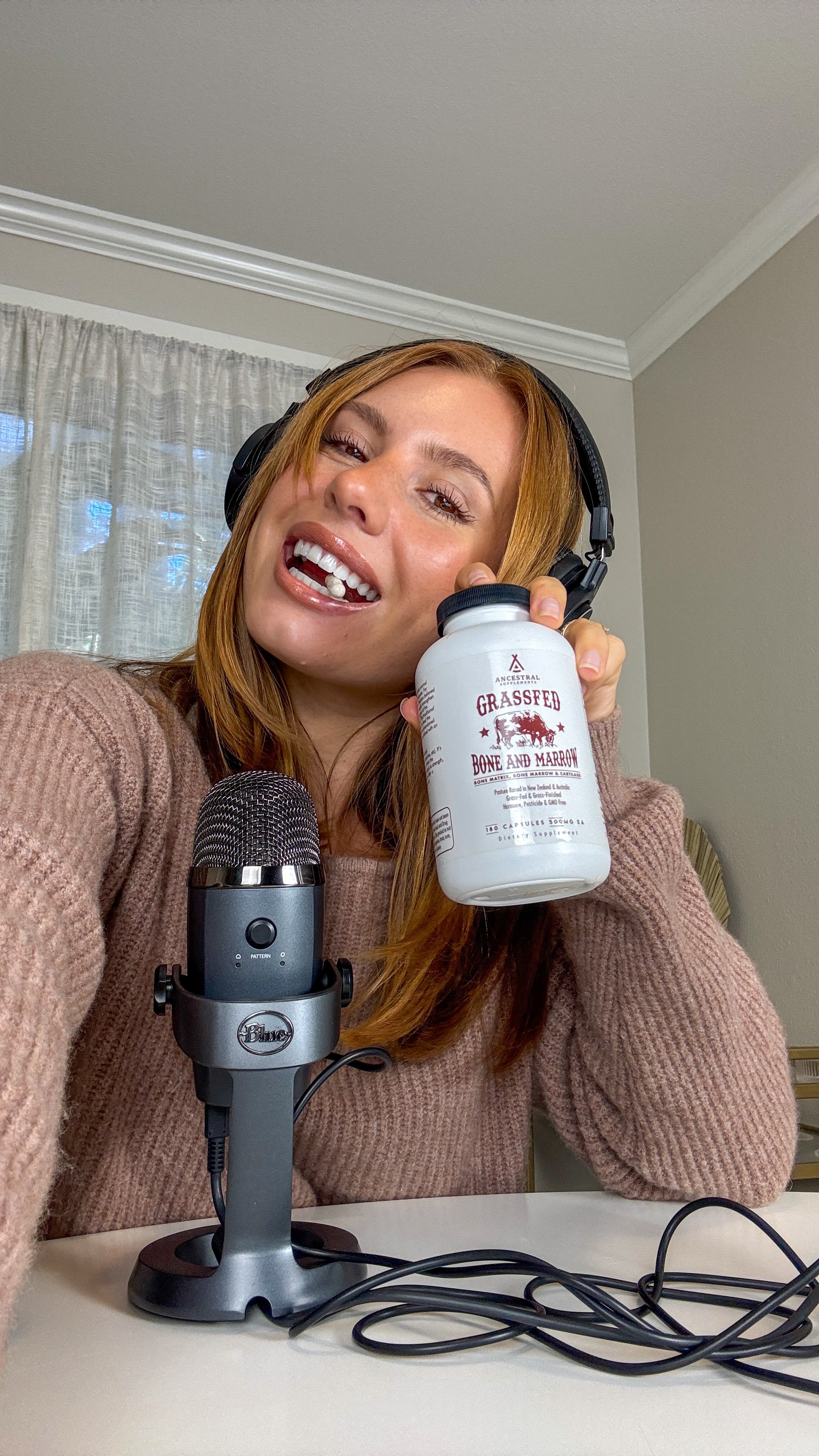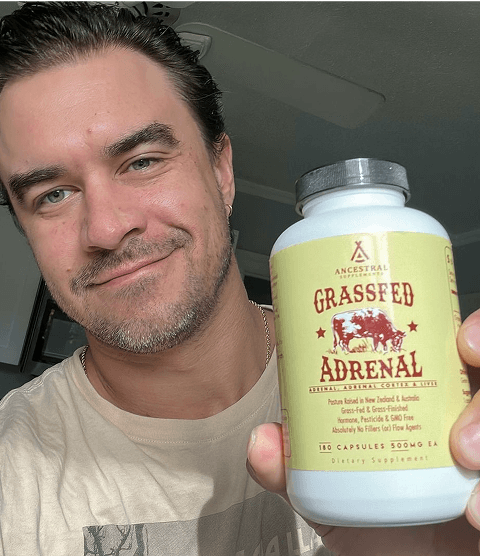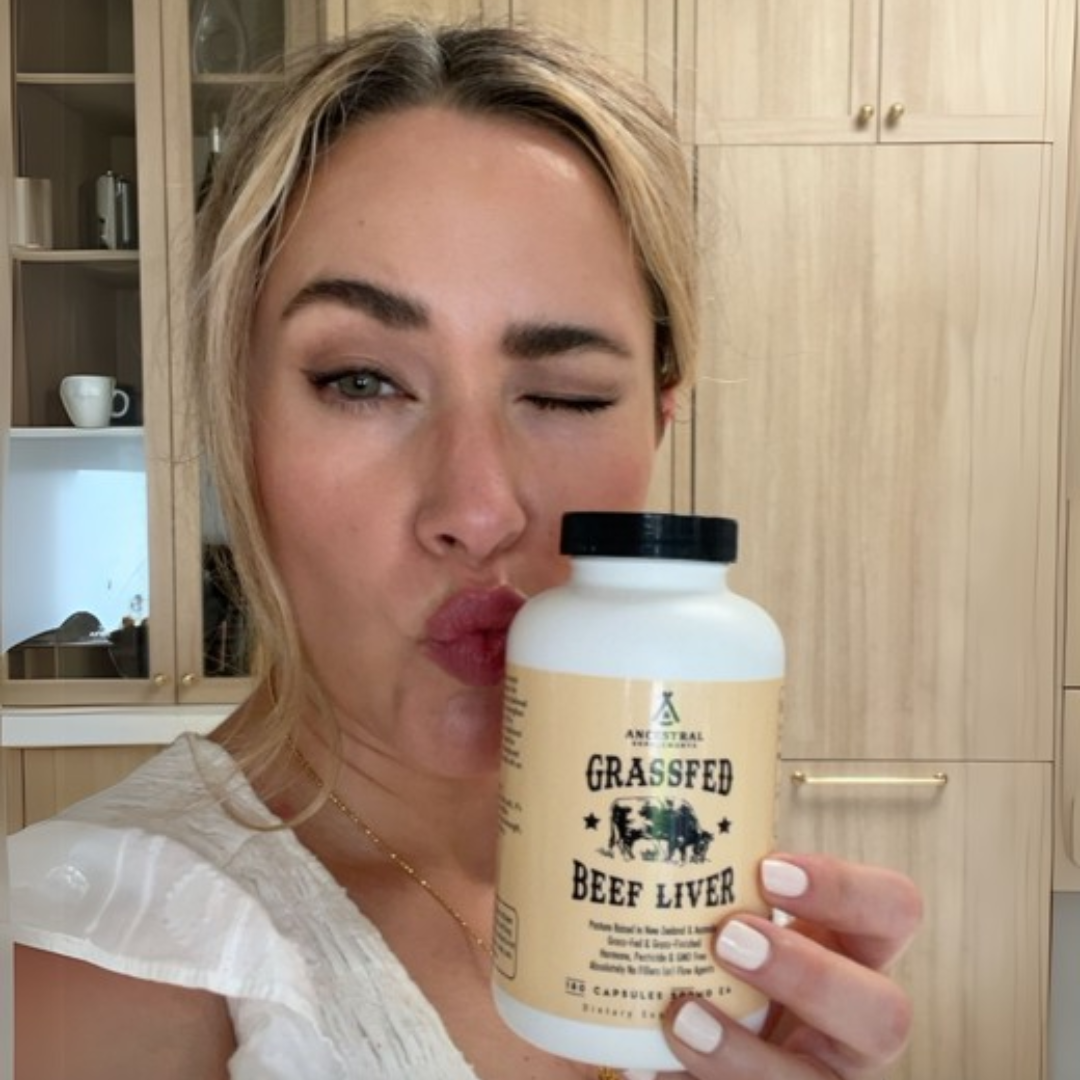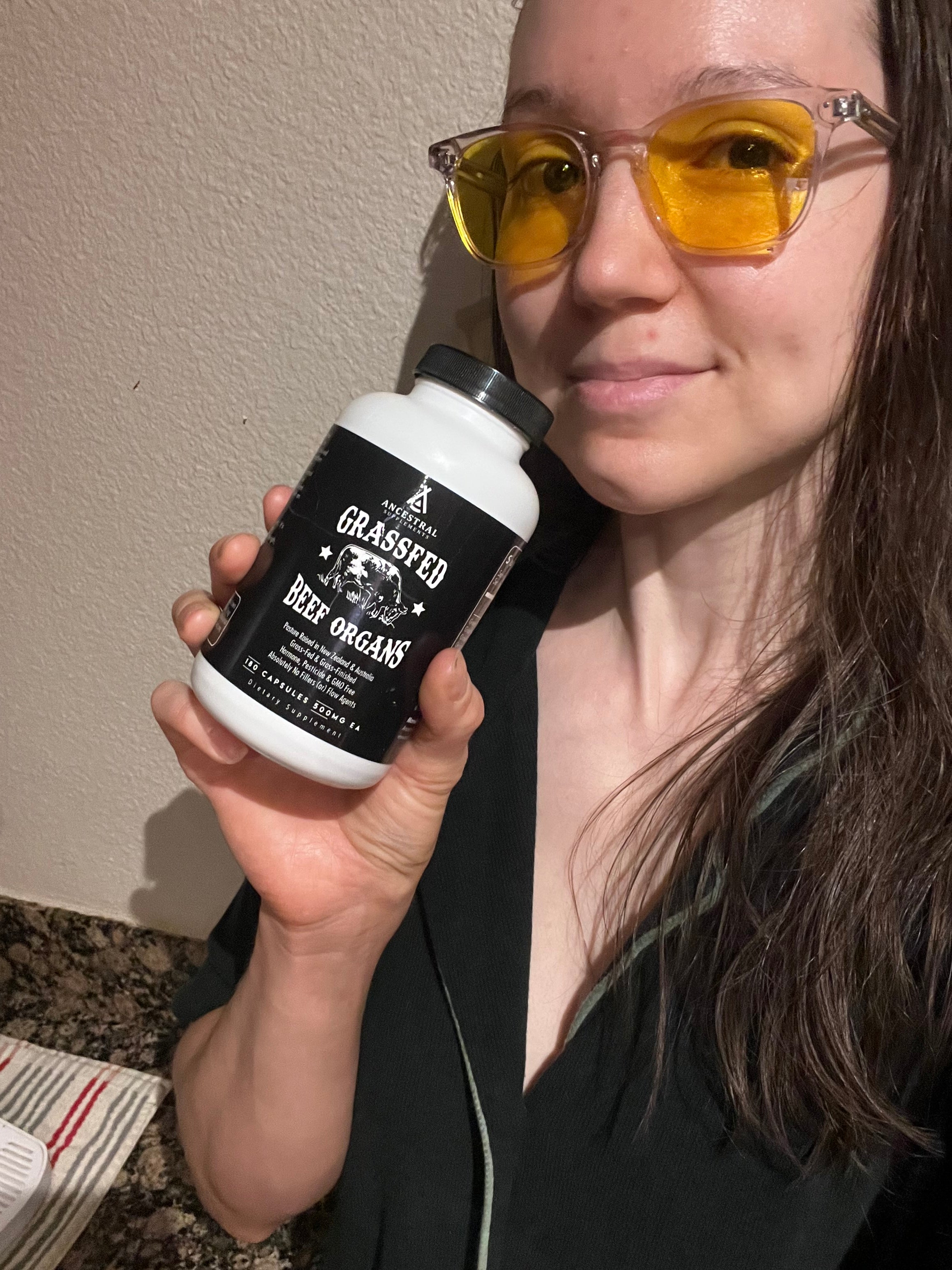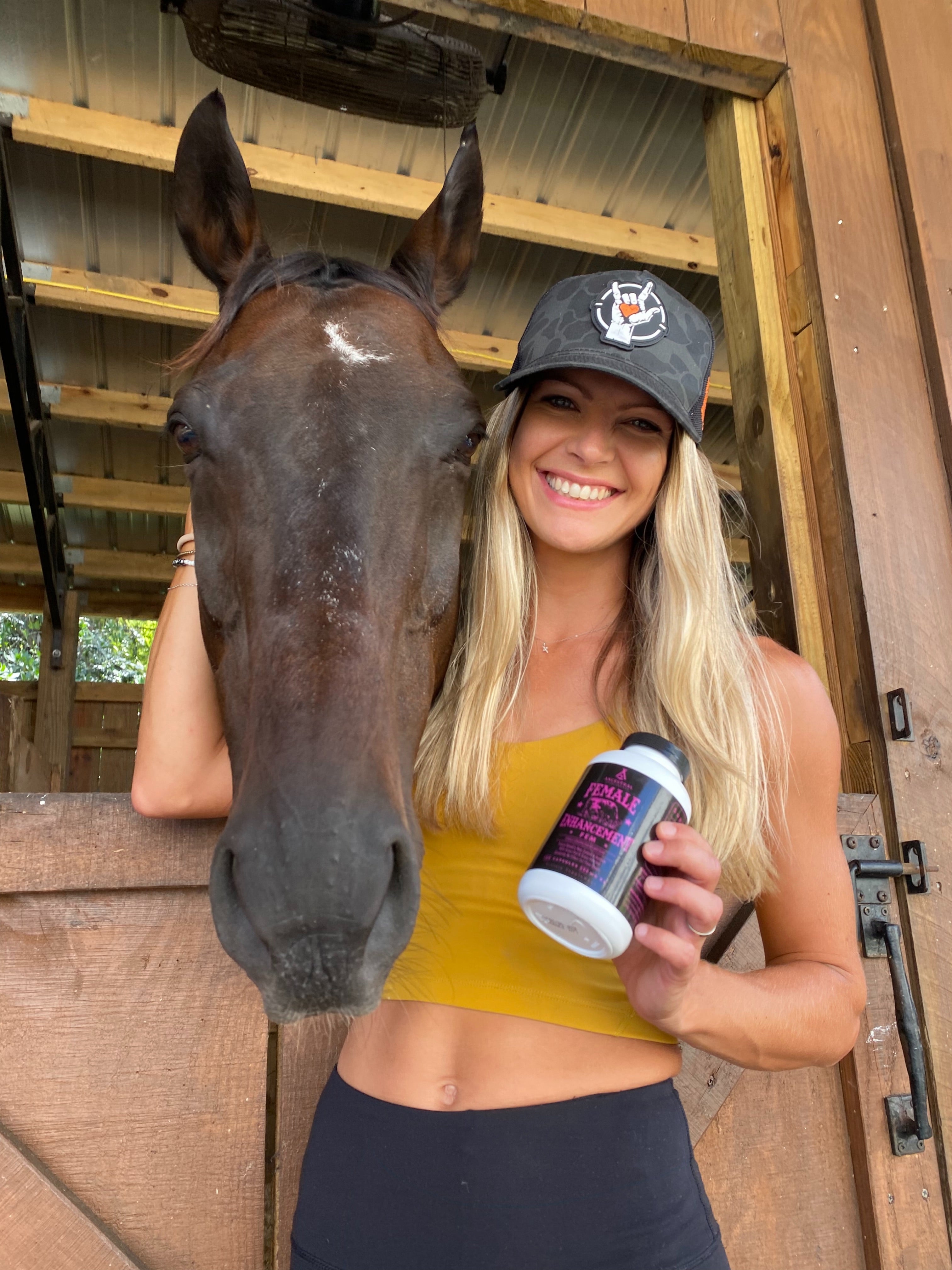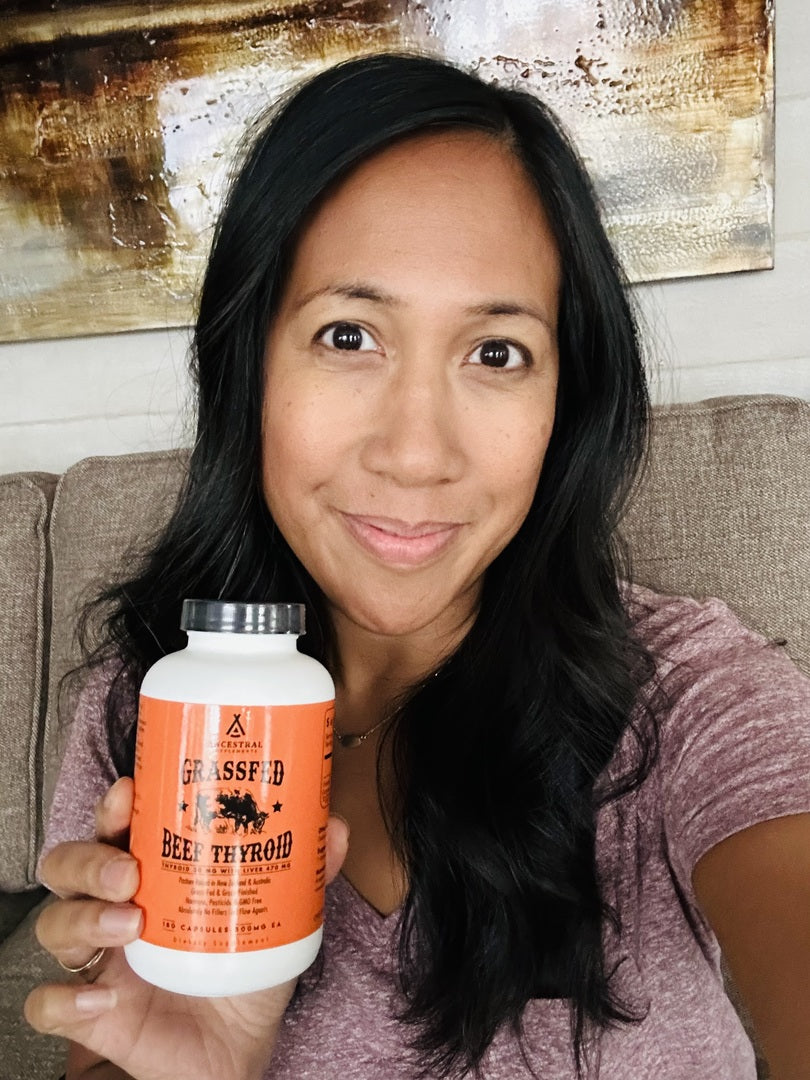

3,000,000+ Happy Customers
Grass Fed Beef Living Bone Supports...
- Remineralization for bone strength & flexibility
- Dental health and cavity prevention
- Calcium and phosphorus absorption
- Muscle maintenance and repair


Grass Fed Beef Living Bone Contains...
- Calcium and Phosphorous in the ideal physiological ratio of 2:1
- Essential Trace Minerals in addition to Type I Collagen
- Molecular Biodirectors — DNA Blueprints To Build and Repair Healthy Tissue
- Bone Stimulating Proteins (IGF I & II, TGF β, Osteocalcin)
Grass Fed Beef Living Bone Is…
- Pasture Raised In New Zealand & Australia
- Absolutely No Fillers or Flow Agents
- 100% Low-Temperature Vacuum Dried
- Third Party Tested For Purity
Restore Your Ancestral Nutrition
For most of human history, we effortlessly consumed (like-supports-like nutrition) the things we needed for strength, health, and happiness. Like the fertile ground that we once walked upon, we were a natural extension of this earth. In the modern world, we unknowingly struggle to fulfill our nutritional needs in order to support and sustain a vibrant, disease-free life. We are now part of a world where our bone health is ailing. The solution is to address the root cause with dietary, lifestyle, and behavioral choices while nourishing and supporting our bodies with proven anthropological ways that are backed by modern science... this includes the use of Living Bone.
- New Zealand & Australia
- Ultra-Pure
- Freeze Dried
- Safety
Join 3M+ Customers
Tag us @ancestralsupplements and get a chance to be featured!
Why Our Customers
Bought This Product
natural food source of calcium.
i need calcium, bone, oral, nails joint, help.
I take this every day for skin, nail, gum, and bone health
Oral health and dicounts
osteoporosis
dental health
Explore More
-
Rated 4.7 out of 5 stars648 Reviews
FEM: Female Enhancement Mixture
Supports female hormone balance, libido, fertility, menstrual cycle regulation, anti-aging, and energy*
$57.80 $68.00 SAVE 15% -
Rated 4.8 out of 5 stars703 Reviews
MOFO: Male Optimization Formula
Supports testosterone, libido, fertility, stamina, and performance*
$52.70 $62.00 SAVE 15% -
Rated 4.8 out of 5 stars1,562 Reviews
Grass Fed Beef Liver
Supports energy, detox, digestion and whole body*
$32.30 $38.00 SAVE 15% -
Rated 4.8 out of 5 stars881 Reviews
Grass Fed Beef Organs
Supports energy, digestion, detox, iron levels, and whole body health*
$40.80 $48.00 SAVE 15%
Additional Product Information
Benefits of Eating Grass Fed Beef Living Bone
Modern-day commercial bone products, like bone meal, are produced from extraneous meat flesh, joints, and bones from any part of the animal. As such, they are highly processed with high heat, degreasing agents, solvents, and acids, and end up being far removed from anything resembling the ancestral "living" bone that our DNA evolved with... these are the raw materials our DNA still expects today to express healthy bones.
Our Living Bone is processed with a low-temperature enzyme digest to remove the non-bone tissue proteins and marrow fat. The next step is vacuum drying over a 20-22hr period and then finally it is milled into a fine powder. Living Bone is teeming with bone-stimulating peptides (IGF I & II, TGF β, Osteocalcin) and has the ideal physiological ratio of calcium and phosphorus (2:1) in a microcrystalline structure that enhances absorption and bioavailability. Unlike isolated commercial calcium supplements, our Living Bone is a source of naturally occurring growth factors and cytokines.
“Bone is living tissue, rather than inert structure. It is rigid, true, but it’s actually an organ, placing it squarely in the nutritional all-star camp of liver, heart, brain, kidney, and sweetbreads. Bone is also slightly elastic, owing to the collagen, which combines with the calcium phosphate to lend “elastic rigidity.” (If it weren’t for the collagen, bones would simply be hard with no give, and thus brittle.) Bone is full of minerals, mostly calcium and phosphorus (seeing as how the “bone” part of bone is calcium phosphate, this is no surprise), along with sodium, magnesium, and other trace minerals.” - Mark Sisson.
Consuming Living Bone supports optimal bone mineral density, bone strength & flexibility, absorption of calcium & phosphorus, as well as muscle maintenance & repair.
Organs and glandulars were a staple of our early ancestors' diets as the ultimate superfood, for good reason. It turns out, this nourishing tradition is backed by science...
"Radioisotope labeling studies in animals have shown conclusively that, when eaten, organs and glands selectively travel to the corresponding organs and glands in high concentrations. This research, done at the University of Scotland in Edinburgh, lends credence to the ancient practice of eating animal organs to help ensure health in one’s corresponding organs..." - Dr. Ron Schmid, ND.[2]
Suggested Use (1 Capsule a Day)
Note: Our old suggested dosage was 3 capsules per day but we changed it to 1 capsule per day based on feedback from customers and our functional healthcare practitioners. Oftentimes our customers take our "Living" Bone product in conjunction with our Bone and Marrow product, and in an effort to ensure they don't overdo it on calcium intake, we adjusted our suggested dosing to 1 capsule per day. That said, as long as you are not taking the "Living" Bone alongside our Bone and Marrow or any other calcium supplement, you can feel free to increase your dose just as you would with many of our other products. Start at just one capsule per day for the first 3 - 4 days... then, go up to two capsules per day for the next 3 - 4 days... then, three capsules per day... and so on. Until you reach the best therapeutic dose for your unique biology. Yes, this will take some time to reach the suggested dosage but this greatly helps to ensure tolerability of this deep nourishment so that it has a chance to do good.
You can take our whole food supplement with (or) without food (even though they technically are food). You can take it all at once or in divided doses throughout the day.
Potential Issues (Detox Reaction)
Ancestral Wisdom Backed By Science [Nutrition]
We evolved with the same incredibly strong bones as our animal brethren. Unfortunately, our modern diet along with continuous stressful forces of impact (like running on concrete or carrying too much weight without enough muscle mass) has led to a decrease in our bone strength and structure. Falling on the ice, car accidents, or a tumble down the stairs can cause our modern bones to fail. While fractures are painful and debilitating, our living bones instantly begin healing. Without question, bone is the ultimate biomaterial. It is light, strong, can adapt to its functional demands, and repair itself... given that it has the proper nutrition to do so.
Based on the concept of "like supports like," consuming Living Bone may strengthen and support our own living bones. This ancestral superfood is especially rich in calcium, phosphorus, essential trace minerals like boron, magnesium, strontium, & sodium, as well as type I collagen and bone stimulating peptides (IGF I & II, TGF β, Osteocalcin). These essential nutrients all work synergistically with each other in harmony with nature, and in harmony with the wisdom of our ancestors.
Calcium and Phosphorous in the ideal physiological ratio of 2:1
Living Bone contains calcium and phosphorus in the ideal physiological ratio of 2:1. This harmonious ratio allows the body to retain its optimal mineral balance. Supplementing with calcium alone can lead to mineral deficiencies and other health problems.
The main function of phosphorus is the formation of strong bones and teeth. It is also necessary for the body to synthesize protein to support the growth, maintenance, and repair of cells and tissues. It even plays an important role in how the body uses carbohydrates and fats and is needed for proper absorption of calcium. Calcium plays a key role in supporting our living bones. It is essential for strengthening bones and teeth, regulating muscle function, blood clotting, the transmission of nervous system messages, and enzyme function.
Weston Price found that traditional cultures largely free from disease and tooth decay were consuming more calcium than the RDA (currently 1 gram). The people of the Outer Hebrides consumed 1.76 grams per day, the traditional people in the Swiss Alps consumed 1.76 grams per day, the natives of Canada’s far North consumed 2.3 grams per day, and Eskimos consumed 2.14 grams per day.
“All traditional cultures made use of animal bones in some way… even if they had dairy products, they still took the bones of small animals and ground them up or they made fermented bone paste...” - Sally Fallon
Our ancestors consumed at least 1-2 grams of calcium per day which you can get from a couple of glasses of raw milk or several ounces of cheese. Most modern people have a lot of dairy products in their diet, so many of us don’t necessarily have to eat bones. For those of us who are allergic to dairy products, or avoid them for inflammatory reasons, we need bones in our diet.
The majority of nutrition experts insist that humans can get all the calcium they need from several servings of spinach, broccoli, or kale. This is only conditionally true and can be highly toxic.
Keep your bones strong, get plenty of calcium and phosphorus in your diet. Look to whole food animal sources of calcium-rich foods like Grass Fed Beef Living Bone, grass fed raw dairy and whole fish (including the bones!) like sardines.
Bone Stimulating Peptides (IGF I & II, TGF β, Osteocalcin)
Bone-stimulating peptides are bioactive growth factors found in the protein fraction of "Living Bone" that play an important role in bone remodeling.
Peptides are tissue-specific information molecules, which influence gene expression, start the process of protein synthesis in cells, and regulate proper cellular functioning. Our organs, including our living bones, consistently produce an optimal amount of peptides, but as we age and are impacted by a number of different stressors (environmental toxins, poor nutrition, stress, etc.) our organs will naturally decrease protein synthesis and no longer be able to form new peptides. Deficiency of these nutrients results in cellular dysfunction, degenerative diseases, accelerated aging, and bone loss.
One of the most effective ways to counter this deficiency is the consumption of bone-specific peptides. Consuming Living Bone supplies our bodies with peptides our body can recognize and use.
Mineral Reservoir for Essential Trace Minerals like Boron, Magnesium, Strontium & Sodium, as well as Type I Collagen
About ten percent of adult bone is made up of Type I Collagen, which is the most abundant protein in the body. Collagen is very strong but this component is what gives our bones flexibility. Consuming Type I Collagen helps us form strong bones and healthy skin.
In addition to its mechanical functions, bone is a reservoir for minerals like boron, magnesium, strontium and sodium. Bone stores 99% of the body's calcium and 85% of the phosphorus. In times of need or nutrient depletion (for example during pregnancy), calcium and other trace minerals can be removed from the bones. For this reason, it is very important to consume adequate amounts of calcium and trace minerals to ensure we are not removing the nutrients from our own bones making them weak and brittle.
Published scientific research on whole bone microcrystalline hydroxyapatite (MCHA), demonstrates its effectiveness at slowing loss of bone mineral density in post-menopausal women, improving symptoms of bone pain in those with osteoporosis and slowing the progression of osteoporosis. [3]
High-quality Organs & Glands
- Should Come from An Unpolluted Geographical Region — Isolated, Healthy, Pristine Lands and Waters
- Should Come from Pasture Raised or Wild Caught Animals
- Should Come from Grass Fed Animals
- Should Come from Animals That Are Free From Added Hormones and Pesticide, Antibiotic, & GMO-Free
- Should Also Be Ultra-Pure... Absolutely No Fillers (or) Flow Agents
- Should Be Non-Defatted
- Should Be 100% Low-Temp Vacuum Dried... Low-Temp Vacuum Drying Preserves Heat Sensitive Biological Activity
We Evolved Eating All Parts Of The Animal
Bones were highly prized by native people across the globe. Intuitively, our ancestors knew they had to eat bones to have strong bones. On every continent, there's evidence of traditional cultures grinding up little birds, small mammals, and fish to consume their calcium-rich bones. For those cultures that did not have access to dairy, bones were their only true source of calcium.
Eskimos fermented their fish resulting in bones that were buttery soft. The natives of Africa made fermented bone paste from the bones of small birds and mammals. In Sweden, herring was roasted over the fire and eaten entirely from head to tail. In Cameroon, native people grill fish bones and eat them like chips.
Our ancestors did not struggle with osteoporosis. Broken bones were
uncommon. Joint problems were almost nonexistent. Their dental health was perfect. In the modern world, we have lost this native wisdom. Our ancestors never threw away bones and they weren’t consuming dinners from a boneless skinless chicken that came out of a box. They were consuming the whole animal, like-supports-like nutrition… bones included!
Can you imagine how strong we would be if we all remembered the wisdom of traditional diets? We are now part of a world where many people are encouraged to consume plant-based diets. You’d have to choke down 8 cups of broccoli every day to get the RDA for calcium, and most of it isn’t even bioavailable! You simply can’t get enough calcium from fruits and vegetables.
Whole food, nutrient-dense organs, glands, and bones provide great benefit for those seeking fundamental support in harmony with nature — the old-fashioned way, the way that our early ancestors did. Living Bone is a whole food dietary supplement that contains pure pasture-raised New Zealand grass fed bovine bone. This nutrient-dense food is rich in calcium, phosphorous, type I collagen, essential trace minerals, and bone stimulating peptides (IGF I & II, TGF β, Osteocalcin) as well as proteins, cofactors and enzymes that nourish and support our whole body, especially the strength, flexibility, and remineralization of our bones.
Essential Additional Nutrients [Required For Optimal Bone Health]
Wife is a holistic biological dentist of over twenty years... she prescribes our Beef Liver, Living Bone, and Pure Marrow (or our Bone and Marrow), right alongside sensible sunshine for Vitamin D (or Fish Eggs), fermented veggies like kimchi (rich in vitamin K2) and magnesium oil for virtually every patient. Yes, this makes a world of difference in tooth remineralization... it also makes a world of difference in bone remineralization and remodeling too.
Calcium, Vitamin D, K2, and magnesium work synergistically together to promote strong, healthy bones. An imbalance between these four nutrients (calcium, vitamins D and K2, and magnesium) is why calcium supplements have become associated with an increased risk of heart attack and stroke. One of the best ways to ensure you're getting enough of all of them is to get regular sun exposure to optimize your vitamin D levels, and to consume a like-supports-like nutrition ancestral diet rich in these essential nutrients. Living this way, your body will have the raw materials it needs, to do what it was designed to do. Here are some suggestions for ancestral foods that provide these bone-building nutrients.
Magnesium:
Although I own a supplement company, I do not believe in supplements. Technically, our products are just... food. That said, magnesium is one instance where supplementation is crucial. Modern farming practices have massively depleted our soils of vital minerals like magnesium, as such you won’t find much in foods touted to be high in magnesium.
Magnesium directly interacts with calcium and vice versa, thus they must be kept in the proper ratio for the body to function properly. Too much of one mineral over the other will cause a mineral deficiency to occur. Almost everyone is deficient in magnesium. Magnesium is critical for proper bone development and, much like calcium, is also needed for enzyme, nervous, and muscular system functions. Magnesium is also needed for carbohydrate metabolism. (The ratio of Calcium to Magnesium is generally recommended to be kept at 2:1.)
The tribe and I use a topical magnesium oil from a company called Ancient Minerals. The problem with an advanced magnesium deficiency is that the stomach lining loses some of its capacity to absorb magnesium. In this instance, oral supplementation can be ineffective. Transdermal magnesium supplementation is an effective way to deliver magnesium directly through the skin. You can find them here... on Amazon. Try it! I genuinely think you will find it helpful. Just a couple of sprays on the tops of the feet before bed and you are good to go!
Vitamin K2:
Price discovered that Activator X (now known as K2), seemed to be responsible for normal bone formation, overall skeletal health, cognitive function, healthy cavity-free teeth, reproductive capabilities, and protection against arterial calcification. K2 is one of the fat-soluble activators, a super nutrient that enables our bodies to absorb and utilize all of the minerals from the foods we eat.
"It is possible to starve for minerals that are abundant in the foods eaten because they cannot be utilized without an adequate quantity of the fat-soluble activators.” - Weston A. Price.
There are two major forms of Vitamin K2 — MK-4 and MK-7. MK-4 is derived from animal sources, such as bone marrow fish eggs, pastured chicken eggs, Grass Fed dairy (butterfats), meat, and in particular organ meat, such as liver. MK-7 is derived from fermented foods like sauerkraut, hard cheeses, and kefir.
Vitamin K2 is a particularly critical component here, because the biological role of vitamin K2 is to help move calcium into the proper areas in your body, such as your bones and teeth. It also helps remove calcium from areas where it shouldn't be, such as in your arteries and soft tissues. It can even help with decalcifying your pineal gland. K2 deconstructs calcium phosphate deposits of the pineal gland and ushers the released calcium back into the bones, where it belongs.
Bone marrow, organ meats, and wild-caught fish eggs are all abundant in vitamin K2 (the MK-4 variety). While smashing bones and sucking out marrowfat was the hard way our ancestors obtained vitamin K, it's not that difficult to obtain marrow bones and either oven roast 3" pieces or slow cook them to make them extra delicious/nutritious... or consider getting our Pure Marrow and Fish Eggs on board!
Vitamin D:
Vitamin D builds your bone density by helping your body absorb calcium and is crucial for calcium synthesis. The best way to get your vitamin D is to get regular midday sun exposure. I schedule my workouts at high noon so I can get sun while I’m moving my body. Try it, or at least take a walk in the sun during your lunch hour!
You can get some Vitamin D from foods too, like raw dairy, our Tallow, Pure Marrow, and Fish Eggs.
According to the Weston A. Price Foundation, a single tablespoon of fish roe contains approximately 17,000 IU of Vitamin D! This means that one tablespoon of fish eggs supplies even more Vitamin D than a midday dose of daily sunshine! This is the Vitamin D boost that the Inuit and traditional mountain-dwelling tribes of South America used when sunlight was not a readily available option.
Get your daily dose of midday sunshine and enjoy vitamin D rich foods like Wild Caught Fish Eggs with pastured animal fats and raw Grass Fed dairy.
Protein: Eat your meat!
Perhaps one of the most important considerations in bone health is muscle mass. More muscle is associated with stronger bones and a decreased risk of osteoporosis. (5) Protein is critically important to maintaining muscle especially as we age.
“If you don't eat your meat, you can't have any pudding! How can you have any pudding if you don't eat your meat!”― Pink Floyd
Research shows the positive effect of dietary protein on bone mineral density and further suggests that low protein is detrimental to bone health. (6) A low protein diet can reduce the absorption of calcium in the intestines. High protein intake is positively associated with bone mineral density. So, if you want strong bones, don’t skimp on the meat! Get enough protein to support your lean muscle mass and bone health.
Be Unbreakable
Our ancestors built their unbreakable bones with their natural diet and lifestyle practices. Of course they were eating the right foods with plenty of nutrition, but they were also lifting heavy things day after day... a scheduled rest day rarely crossed their minds. They were building, hunting, carrying, battling, and struggling in blood and sweat day after day. No one is expecting modern-day men and women to start hauling around fallen logs and rocks every day, but it’s never too late to start a weight lifting routine.
Each and every one of us (no matter our age!) are perfectly capable of building and maintaining strong and healthy bones. Brittle bones aren't necessarily a fate that has to befall you just because you're getting older. Yes, we need to consume the proper nutrition to build strong bones, but we also need to lift heavy things. Proper diet, regular sun exposure, and weight bearing exercise can both prevent and treat weakening bones.
How It Works:
Lack of physical activity causes bone loss and fractures not only in elderly people but also in bedridden patients or otherwise inactive youth. Throughout life, bone is constantly remodeled by bone-resorbing osteoclasts and bone-forming osteoblasts. Load-bearing exercise works to build stronger bones by stimulating cells responsible for the synthesis and mineralization of bone (osteoblasts). Weight-bearing exercise is actually one of the most effective remedies against osteoporosis... as you put more tension on your muscles it puts more pressure on your bones, which then respond by continuously creating fresh, new bone.
What To Do:
If you’re just starting out, I’d suggest starting with simple things like walking on uneven surfaces, like a forest trail or up and down grassy hills. This will build core strength and help to improve balance (which can help to prevent falls in the first place!). You get bonus points for doing it barefoot in the sun! ...and for men, shirts off! Ladies, shorts and a tank top would work well too!
A good weight-bearing exercise to start out with is a walking lunge, as it helps build bone density in your hips, even without any additional weights. Running and jumping are also effective. If you’re feeling solid with those, get some weights, either for your home or in a gym. Practice weighted squats, deadlifts, overhead presses, bench presses, etc. Find a trainer, a friend, or some online instruction to help you get started. To ensure you’re lifting the right amount of weight and to prevent any injuries, you’ll want someone to help you make sure you’re lifting with proper form.
Spinach Sabotage
Many plant foods touted to be high in calcium, are also high in oxalates. Plants use oxalates to store extra calcium by binding it up into a crystal. Oxalates are very useful for plants, but toxic for humans, as the oxalate crystals can get lodged in our soft tissues and cause a myriad of health problems, including kidney stones, joint problems and even death. That said, oxalate toxicity symptoms tend to be very insidious... proceeding in a gradual, subtle way, but with harmful effects.
Oxalic acid is a mineral thief that strips minerals from our body, especially calcium. Oxalic acid binds to calcium to form calcium oxalate or oxalate crystals (the main ingredient in kidney stones). The oxalate crystals continue to bind to calcium and bioaccumulate into larger and larger crystals. They travel through the body growing and accumulating more calcium to become very sharp crystals, then the body deposits them into our soft tissues (think joints, muscles, and kidneys). As oxalate crystals grow throughout the body, one might notice their muscles start aching, or their eyes, ears, mouth, and throat start burning, and stones can form in the kidneys. (7)
Yes, many plant foods are rich in calcium, but calcium is useless for us when it’s bound up in an oxalate crystal. Although we can measure the calcium content in spinach… that doesn’t mean it’s available as a nutrient for the body. There is a big difference in what we can measure in food and what our body can absorb and use. If we consume the RDA (recommended daily allowance) of calcium from spinach, and all of it is tied up in oxalate, we really get 0% of the RDA.
Oxalates are not only sharp little mineral thieves wreaking havoc on our calcium and iron stores, they are also totally toxic and can cause a lot of damage to our soft tissues, joints, organs, and nearly every bodily system. The gradual effects of oxalate toxicity can lead to renal damage, neurological symptoms, sleep disturbances, loss of memory, brain fog, fibromyalgia, and carpal tunnel syndrome. (8)
So, if you want the most bioavailable source of calcium (without the sabotage), opt for animal sources that aren't tied up in oxalates, like raw dairy, bone-in sardines, and our Grass Fed Beef Living Bone.
- Choosing a selection results in a full page refresh.
- Opens in a new window.
Register to receive a notification when this item comes back in stock.

